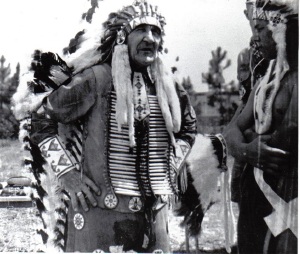If you read this blog regularly, you know I’m a little obsessed with Clifford Irving, the writer who in 1970 accepted a million-dollar check for his authorized biography of the reclusive millionaire Howard Hughes. One problem: Hughes knew nothing about the book. The author was trying to pass off a fake and pocket a huge payday, and just as fascinating as the ruse was Irving doggedly sticking to his story even after the whole thing fell apart spectacularly. It was a literary scandal of Madoff-ian proportions, and a case study in extreme psychological behavior.
In 1972, as Irving was about to serve a stretch in prison for fraud, Ramparts magazine assigned Abbie Hoffman to do a Q&A with the trickster. An excerpt from the resulting article, “How Clifford Irving Stole That Book“:
Abbie Hoffman:
Did you ever get the idea, once the authenticity was questioned, of publishing it as a work of fiction? Would that have been really possible?
Clifford Irving:
You mean since recent events?
Abbie Hoffman:
Yeah.
Clifford Irving:
Oh, yeah, I still would like to have the book published. I think it’s the best novel I’ve ever written and it could easily be turned into a novel. It could also be published as is, provided libelous passages were taken out of it and provided that it stated very clearly that it’s a bogus autobiography of Howard Hughes. There is a court ruUng on it. As we understand it the court has given us permission to publish part or all of the book, provided that it’s made perfectly clear that it doesn’t purport to be genuine.
Abbie Hoffman:
I thought a funny incident occurred at Germaine Greer’s press party when you were introduced to Chief Red Fox. Could you talk about that a little?
Clifford Irving:
I went to this cocktail party. I was dragged along by Beverly Loo and Robert Stewart. I hate those damn cocktail parties but I had nothing to do and I wanted to meet Germaine Greer ’cause I heard she was six feet tall. But she was far more interested in talking to women’s liberation people and I stood around like a dope for awhile until I saw this beautiful old man in a corner. I asked about him and was told that’s Chief Red Fox, a 101-year-old Sioux Indian chief, and I said, ‘Beautiful, I’ve got to meet him.’ And I sat at his feet for an hour or two, talked to him, and he was a marvelous old man. But the way he came on to me with the broad American accent and told me how he danced at supermarket openings and was on the Johnny Carson Show where he did a war dance to liven things up, also the way he talked about Indian history, made me a little leery and I thought, well, he’s great but he’s not a 101-year-old Sioux Indian chief. Despite the fact that he was decked out like a technicolor western with a war bonnet and greasepaint make-up. And I went up to Beverly Loo and said,’He’s a great man, Beverly, but he’s no more a 101-year-old Sioux Indian than you’re the Empress Loo of the Ming Dynasty. She got very uptight about that and said, ‘What do you mean? How dare you!’ and I decided not to upset her any further so I backed off. Then of course it turned out later that there were great doubts thrown on the veracity of his books and his identity as well. I don’t know if I really smelled it out but something was funny there. I think maybe I was thinking in terms of a hoax since I was involved with one, and Chief Red Fox seemed to fit right into the category.
Abbie Hoffman:
When incidents like that happened did you start to feel you were watching a movie being made about your life or that you were acting out some kind of movie role?
Clifford Irving:
Well, going through that year I often felt that it was a happening because we sometimes had control over events but so many things happened that were absurd. And after awhile—not that I saw myself as a movie star—I saw this whole thing developing as a script, a movie script which no one would ever buy because it was ridiculous, it couldn’t possibly happen. The real and the unreal in a sense became totally confused—not that I really thought I was writing the autobiography of Howard Hughes, although of course in the act of creation you have to believe to a certain extent, but when you stop work you don’t believe any more. I mean you know what you’re doing but all the events had such a quality of ludicrousness and fantasy and coincidence that reality did at times blend with unreality. I think for the publishers as well.•
See also:


